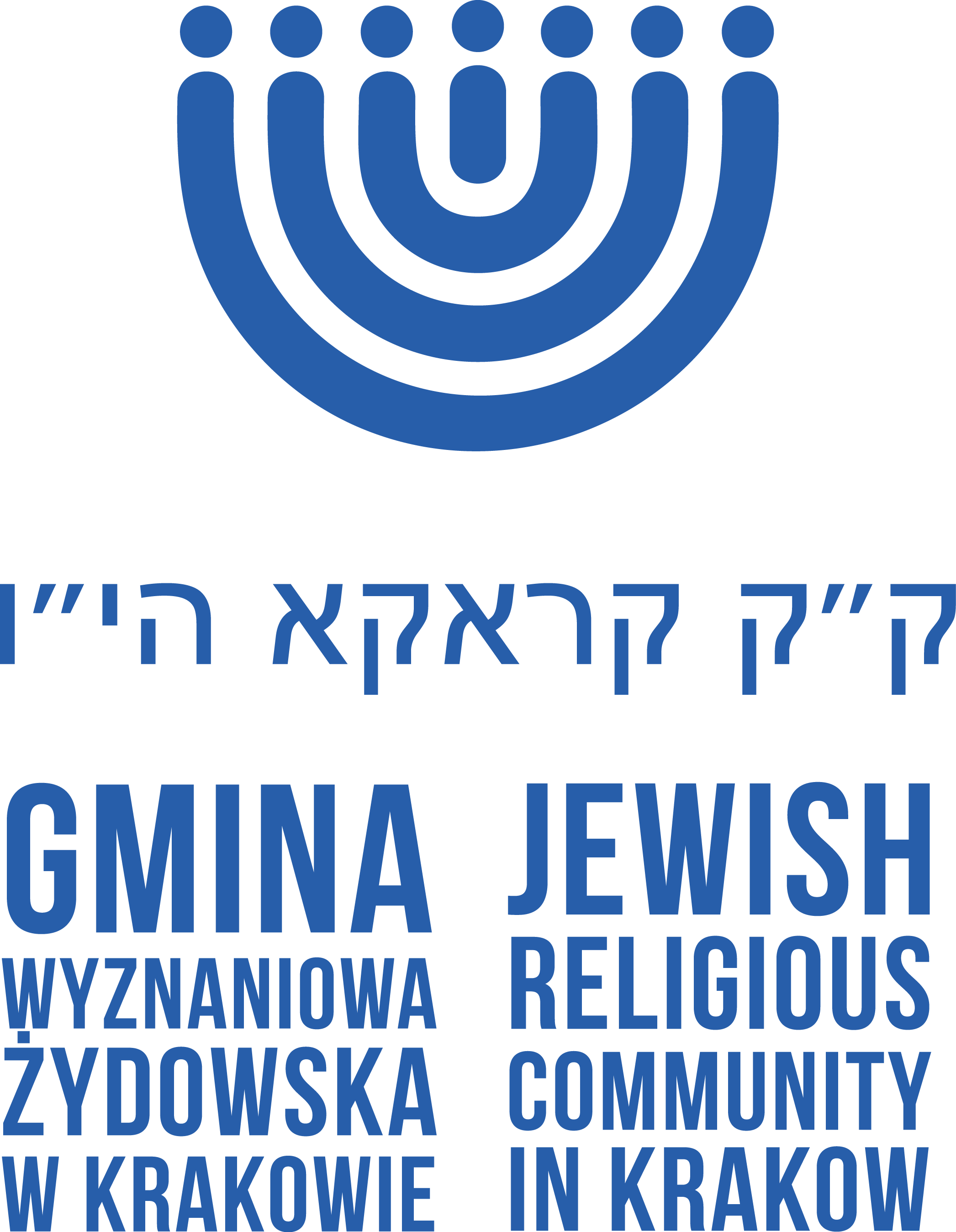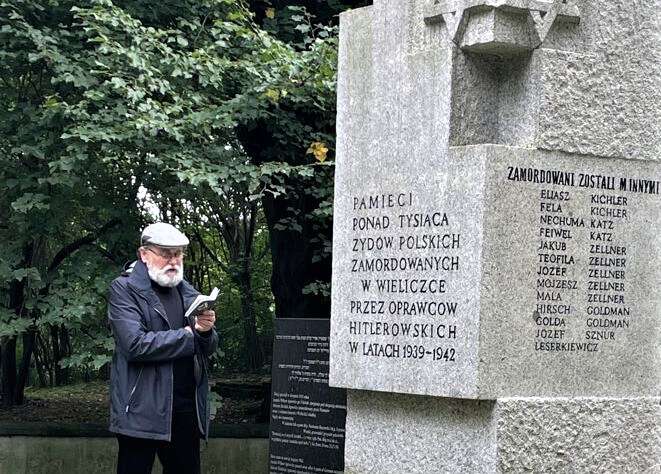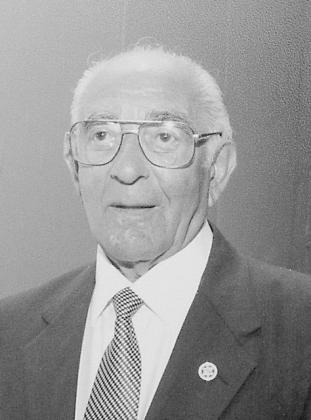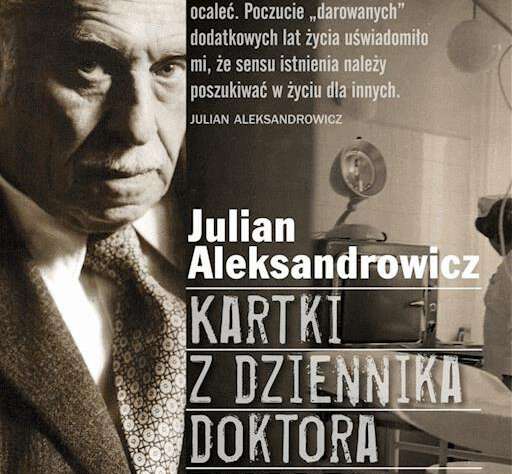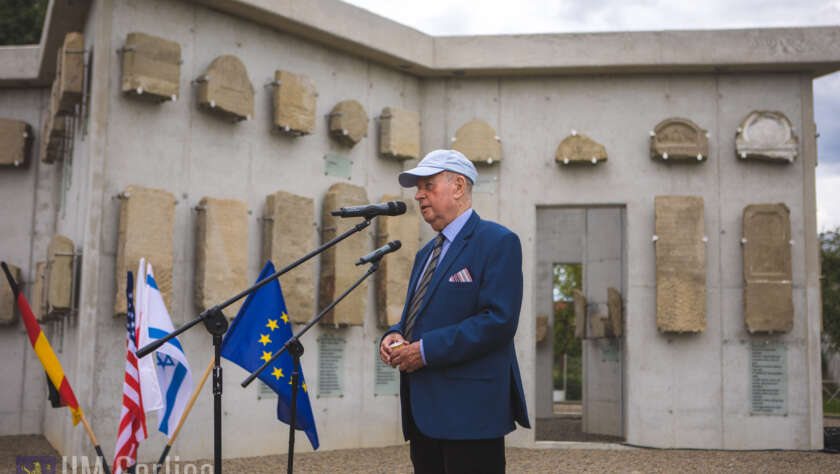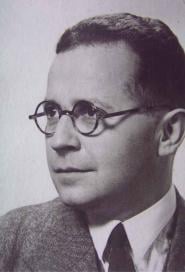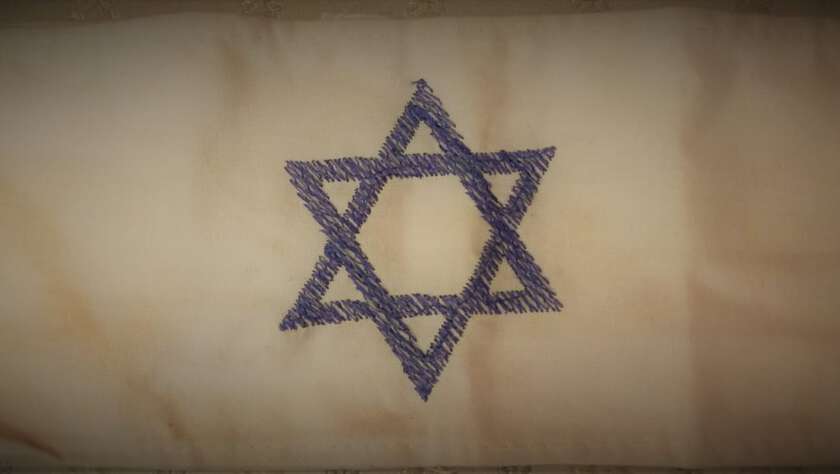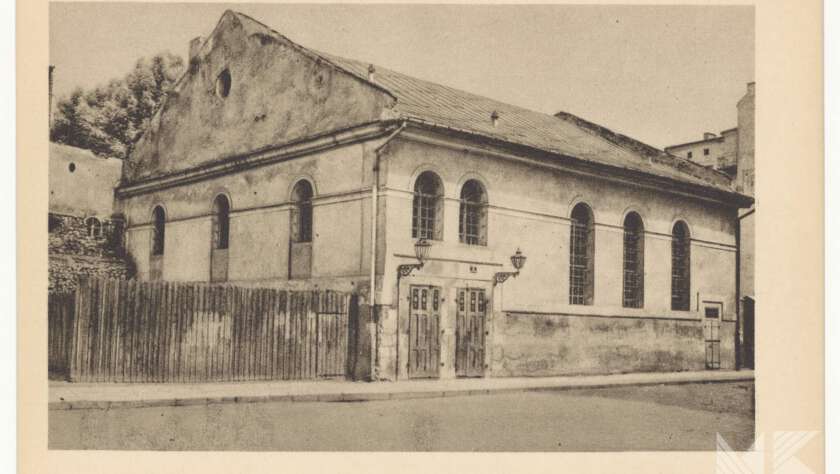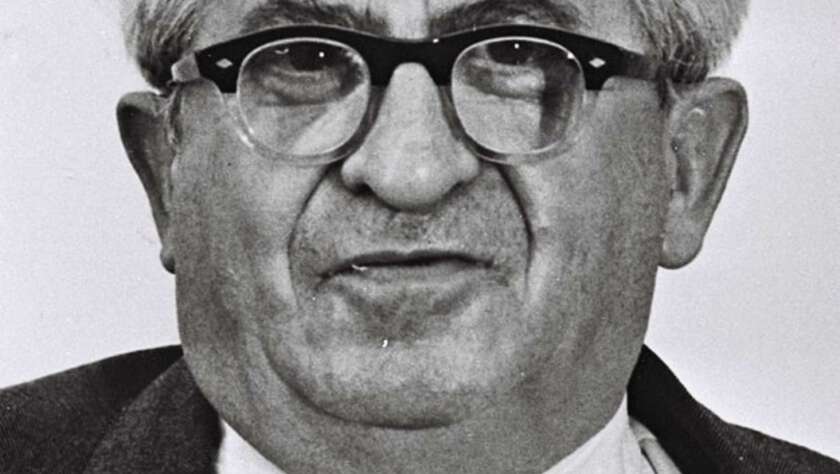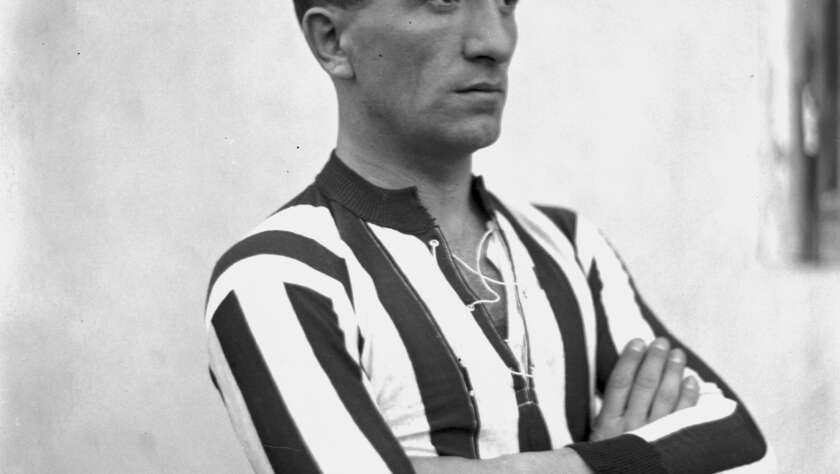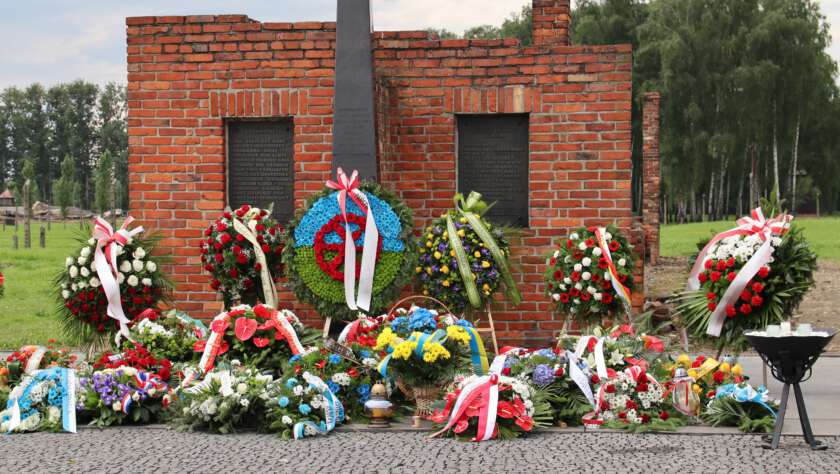Today, 27 August 2021, based on an initiative of the Mayor of Wieliczka, Artut Kozioł, a ceremony was undertaken remembering the murdered Jews of Wieliczka and its surroundings, may they rest in peace. The Jewish Community of Kraków was represented by a delegation headed by Chairman of the Board Tadeusz Jakubowicz.
BS”D 17 Elul 5781 Wiktor Lezerkiewicz was born on 25 August 1919, he was the son of Abraham and Berta. Before the war he played football for Makkabi Kraków and was among those saved by Oskar Schindler. During the German occupation he was in the ghetto in Kraków and was sent to the camp in Belżec in October 1942 and managed to escape with his brother during the transport. The rest of the family was murdered. He went back to the Kraków ghetto and after the liquidation was sent to Płaszów. Thanks to Oskar Schindler in October 1944 he was in the Brünnlitz Camp, where he worked as an electrician until the liberation in May 1945. After the was he went back to Kraków and married Regina…
BS”D 12 Elul 5781 Julian Aleksandrowicz was born on 20 August 1908. He was a medical doctor, a professor of medicine and a philosopher. 20 sierpnia 1908 r. w Krakowie urodził się Julian Aleksandrowicz; lekarz internista, profesor nauk medycznych, filozof medycyny i hematolog. He became a medical doctor in 1933 and finished studying Physical Education next year. He also defended his doctoral thesis in 1934. In 1939 he was drafted into the army. He escaped from a POW camp and returned to Kraków in January 1940, but in 1941 he was taken to the ghetto in Kraków, where he organised one of the three hospitals. During the liquidation of the ghetto he escaped with his wife and children through the sewers and rejoined the army. He organised…
A ceremony remembering the anniversary of the liquidation of the Ghetto in Gorlice took place on 19 August 2021, out of an initiative by the mayor of the town, Rafał Kukli, attended by representatives and by the Chairman of the Jewish Religious Community of Kraków, Tadeusz Jakubowicz.
BS”D 9 Elul 5781 Julius Feldhorn was born in Tarnopol on 17 August 1901. He was a historian of literature, a teacher, a poet and a translator. He graduated from the Philosophy Department of the Jagiellonian University in 1923 and received his doctorate in 1927. Right after, he started to teach Polish in a Jewish school in Kraków. He worked for several newspapers and published books of poetry. He was well-liked by his pupils. He fought at the outbreak of the Second World War and was imprisoned in Lublin, but escaped to Lvov. After the outbreak of hostilities between Germany and the Soviet Union he hid in Wiśnicz and Swoszowice, but was captured by the Germans and shot in August 1943, may he rest in peace. Text:…
BS”D 5 Elul 5781 The month of August is a very sad month for Jews since there are almost daily anniversaries related to the Shoah and therefore with suffering. We remember these events also so that those who were murdered will live on in our hearts. On 13-14 August 1942 the German occupants deported and then murdered most of the inhabitants of Dukla, Rymanów, Bobowa and Biecza. In all these places there was violence, then a selection, then deportation, then murder. 2000 people from Dukla and Rymanów were sent to Belżec and murdered. Healthy and young men were sent to concentration camps, others (women, children and old people) shot in the Błudno woods near Tyława and those who had not the strength to walk were killed in…
BS”D 3 Elul 5781 According to Martyna Grądzka-Rejak people were praying in the Kupa Synagogue. A crowd started gathering in front of the building and started to attack the building in front of the synagogue. The Jews at first did not react, thinking that stone-throwing and shouting were part of the usual anti-Semitic routine. A boy shouted that they were going to kill him. At about 11 AM the crowd went inside the synagogue, devastated it and burnt books. Physical violence ensued. Policemen and soldiers took part in the attack, which reinforced the idea, in the crowd, that attacking Jews was allowed. 56-year-old Róża Berger, may she rest in peace and may the murderers be punished, was killed after surviving Auschwitz.
BS”D 1 Elul 5781 Jan Bader was born in Kraków on 9 August 1901, the son of Leib and Jenny (born Bergstein). He was a Kraków lawyer, graduate of the Jagiellonian university and from 1949 to 1977 a member of the Israeli Knesset. In Kraków he had an office with his brother Henryk. He was a journalist. During the was he escaped to the East and was in Soviet territory, where he was arrested. In 1943 he managed to reach Israel. In Israel he was arrested by the British because of his underground fighting for independence and was only freed in May 1948. He died on 16 June 1994 in Ramat Gan, where a street is entitled to him. Another one can be found in Beer Sheva.
BS”D 29 Av 5781 Leon Sperling was born in Kraków, the son of Salomon. He represented Poland in football and played 21 matches in the national team. We was an Olympic athlete, three times Polish champion within the Cracovia football team (1921, 1930, 1932) and worked in a bank. The graduated from a school with a formation in commerce. One of the best forwards for Poland in the interwar period, he was called the “magician of the ball”. Almost his whole career was in Cracovia, for which he played 381 matches. His first match for Poland was on 18 December 1921 in Budapest against Hungary. In 1924 he took part in the Olympics in Paris. In 1934 he retired from his football career, wed Sara Perla and…
BS”D 24 Av 5781 On 2 August 2021, the 77th anniversary of the liquidation of the “Family Camp for Gypsies” in the concentration camp of Auschwitz, members of the Jewish Community of Kraków together with the Chairman of the Board, Tadeusz Jakubowicz, took part in the ceremony of remembrance of the Roma and Sinti Holocaust Victims, at the Auschwitz-Birkenau Museum. Taking part in the ceremony were: Roman Kwiatkowski (president of the Roma association in Poland), Piotr Cywiński (director of the State Museum of Auschwitz-Birkenau), Romani Rose (president of the Central Council of German Roma and Sinti) and Włodzimierz Bernacki (Permanent Secretary, Government Representative for the monitoring of the reform of higher school education and science, who read a letter from Prime Minister Mateusz Morawiecki), the Vojevod of…
